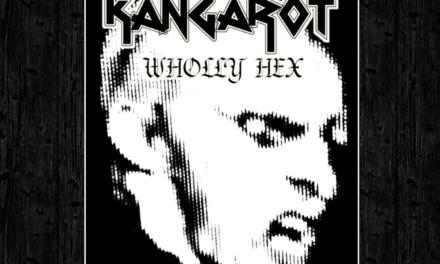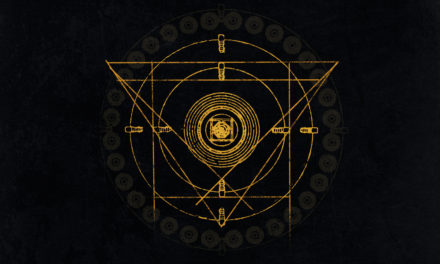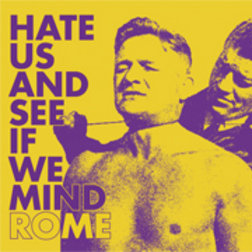[:SITD:]
Icon: Koru
Accession/Metropolis
[:SITD:]’s particular brand of widescreen EBM emerged fully formed on their 2003 debut Stronghold, and has with varying degrees of success been the template for their work since, culminating in 2009’s Rot, arguably their strongest LP. Their predilection for simple rhythms, expressive pads and strong melodies may seem straightforward, but it’s yielded no end of excellent material, all with a distinct sense of grandeur that is distinctly theirs. That’s probably provided the impetus to stay the course: for better or worse the German trio have never really strayed too far from what they’ve done from the outset. Understanding that, the relative quality of their new LP Icon: Koru (and to a greater extent, all of the group’s work) hinges on the execution of their formula and the audience’s willingness to overlook similarities to previous entries in their catalogue. By those standards the album is a mixed success: it expertly works the elements of [:SITD:]’s sound that make them distinctive, and only falls short when it fails to exceed previous applications of those same fundamentals.
With that in mind, it’s unfair to dismiss Icon: Koru on the basis of repetition. There’s a reason why their remix work is consistently amongst the strongest scene-wide – whether they’re reworking acts as disparate as Suicide Commando, Destroid or Eisbrecher, their signature motifs remain compelling, and they know how to apply them. Witness “State of Tyranny”: the fact that it’s the sort of pumping, lead driven club song in a minor key we’ve heard them do before doesn’t rob it of any of its power. The same can be said of “Code: Red”, at its heart another incarnation of mid-tempo early hits “Snuff Machinery” and “Laughingstock” but with a slower, if no less pounding pace. “Dystopie” goes the same route with less success: although it layers more distortion on Carsten Jacek’s vocals it lacks a hook as strong as “Laughingstock” to carry it.
Tacky though it may be to turn this review into a game of spot the soundalike, it can’t be overstated that almost every one of the record’s tracks has some sort of equivalent in [:SITD:]’s previous work, and that goes beyond obvious gimmes like “Periculär (Richtfest II)”. “Tarnfarbe” is reminiscent of Rot‘s fast paced instrumental “Pride” right down to the epic trance style breakdown. “Atemlos” screams “Lebensborn”, although it lacks much of the emotion that makes the latter song so compelling. I want to stress that none of these songs are bad, in fact they’re mostly quite good. They suffer only in comparison to their precursors, a problem that entirely exists in the eye (or more accurately ear) of the beholder. Tellingly enough, the only outright bad song is the tepid, pseudo power-noise number “Dark Defender”, which also happens to be the only song without an obvious analogue. Draw your own conclusions.
In judging Icon: Koru it’s of critical importance to keep in mind that context isn’t everything, and minus a working knowledge of [:SITD:]’s previous work the album doesn’t lack for potency or impact. To my mind its major quantifiable flaw lies in its failure to depart significantly from the very things that make it a pretty enjoyable listen in the first place. The history of popular music is littered with poorly conceived attempts by artists to step outside of their comfort zones, and although an interesting failure has its own set of standards to be judged by I have a hard time throwing [:SITD:] under the bus for sticking to a blueprint that functions for them. If pressed I’d place the record squarely in the middle of their catalogue quality wise; it’s certainly better than their sophomore release Coded Message: 12 or Bestie: Mensch. (I spent a solid ten minutes trying and failing to generate a pithy comment about the group’s use of the colon in album titles, feel free to e-mail me one if you’re more successful.) If anything, it stands as a testament to the double edged sword of sticking to a modus operandi, no matter how strong.





Trackbacks/Pingbacks